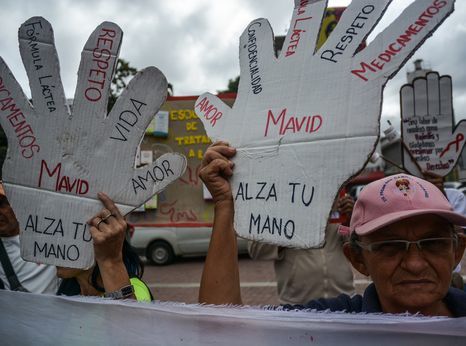Opposition members face ongoing threats

Upon National Assembly President Juan Guaidó’s return to Venezuela on 11 February 2020, his uncle Juan José Márquez was arbitrarily detained and accused of smuggling explosives on his commercial flight from Lisbon, Portugal to the Simón Bolívar International Airport in Maiquetía, Venezuela. Mr. Marquez’s arrest represents the continuation of a worrying pattern of the targeting of those close to opposition lawmakers and other members of staff.
Other opposition lawmakers have themselves been arbitrarily detained, including Ismael Léon. Lawmaker Juan Requesens continues to be detained, reportedly incommunicado since 5 February, and his representatives manifest that he has been tortured and suffered severe irregularities in his judicial case. The location of lawmaker Gilber Caro has been disclosed to his lawyers and family but he remains arbitrary detained after he was enforced disappeared for a month. Among those arbitrarily detained was Roberto Marrero, National Assembly President's chief of staff, who was arrested on 21 March 2019 and remains held by the Bolivarian National Intelligence Service (SEBIN) in El Helicoide, Caracas. President Nicolas Maduro and his government continue to intimidate, harass, physically abuse, arbitrarily detain and forcibly disappear National Assembly representatives and staff in an attempt to silence political dissent.
In recent years, dozens of opposition members have been forced to flee the country and request asylum in the face of threats they have received from the Maduro government. At least two opposition lawmakers (Freddy Guevara and Roberto Enriquez) have sought the protection of foreign embassies in Venezuela, where they have remained for nearly three years.
These actions are part of a policy of repression that seem to originate from the top of the Maduro government in an attempt to hinder civil and political rights.
In last year’s report, Hunger for Justice: Crimes against Humanity in Venezuela, Amnesty International concluded that the selective extrajudicial executions, arbitrary detentions, and deaths and injuries caused by the excessive use of force by Nicolás Maduro’s government as part of a systematic and widespread policy of repression since at least 2017 may constitute crimes against humanity.
Since 2014 Venezuelans have fled in unprecedented numbers in search of safety and a dignified future abroad. By December 2019, an estimated 4.8 million had fled the country and it is believed that this figure will reach 5.5 million in 2020.